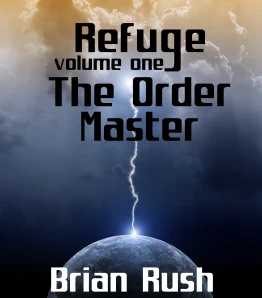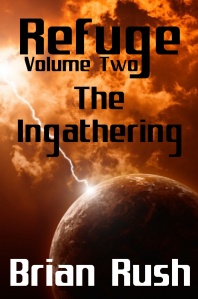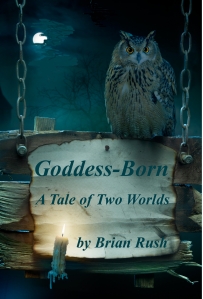
“For I have sworn upon the altar of God eternal hostility against every form of tyranny over the mind of man.” A Portrait of Thomas Jefferson as Secretary of State. (Photo credit: Wikipedia)
The imagination is a dangerous thing to tyrants.
If you look at systems of control, ways to bind and shackle human will so that people will be cowed into serving the selfish interests of others, all of them involve suppressing and controlling the imagination. Two methods are used for this purpose, one affirmative, the other negative.
The affirmative method is to present powerful (but vetted and safe) images for the imagination to fix upon. “If you must imagine, imagine this,” the powers say, pointing to:
- Religious symbols
- Myths (with chosen interpretations)
- Flags and banners
- Patriotic stories
- Enemies of the faith or of the state
The negative method is to set boundaries on the imagination and threaten punishment for going across those boundaries. Sometimes the punishments are real and physical (jail time, concentration camps, execution, torture). Sometimes the punishments are themselves imaginary (hell). In a testament to the power of the imagination, the imaginary punishments can often be more effective than the real ones in shaping behavior, which is of course the whole point of punishment.
I had a recent experience that illustrated this process. A friend of mine who had expressed interest in this blog found it by doing a Google search, but was reluctant to read any of the posts. He spoke of how many hits the search found (I’ve verified that most of the hits are posts or pages from this blog), and how it was spread all over the place and I might find more readers if I paid attention to this and focused and consolidated. I had a hard time understanding what he was talking about at first.
“What do you mean, all over the place?” I said. “All of the posts on my blog are about just two subjects: spirituality and fantasy storytelling.”
Finally he expressed what he really meant: the fantasy part bothered him. Conjoining that with spirituality suggested sorcery to him, which scared him. In his case, the controls were applied well: he had become afraid of his own imagination, and dared not let it roam freely.
Imagination leads to questioning, to disobedience, to heresy, to defiance of authority. That’s why the powers that be, both secular and religious, hate and fear it and wish to keep it under strict control. If they fail to control your imagination, they will also fail to control your beliefs and your behavior — and that can lead to consequences which are terrifying to tyrants.
In fact, one could make the case that freedom in the physical world flows from freedom of the imagination, just as inventions and works of art are also always preceded by their imaginary counterparts. If you are free to imagine, then you will also be free to act. If you are not free to imagine, then you cannot be free to act, because you cannot imagine action, and if you cannot imagine it you cannot do it, either.
Spirituality, if it is genuine, is also free. It does not follow a formula. It does not conform to the dictates of any religion. It is not orthodox. True spirituality is prophecy, and all genuinely spiritual people are prophets of God (or of the gods, for One and Many are only metaphors and this envisioning is itself an act of free imagination). Prophets are those who have a powerful connection with the holy — whose god sense is wide awake — and whose imagination is free. A prophet is always a heretic; if orthodoxy were sufficient, there would be no need of a prophet, after all.
Thomas Jefferson famously wrote in a letter to a collateral ancestor of mine that “I have sworn upon the altar of God eternal hostility against every form of tyranny over the mind of man.” He was referring specifically to the clergy and their opposition to his run for the presidency, and his phrasing was apt, especially if we also recognize that the human imagination is a key feature of “the mind of man.”
And this, I believe, is a great gift that fantasy fiction can provide to us. It encourages us to think and imagine about spiritual matters outside the shackles of orthodoxy. It encourages us to play with the magical and the religious and the divine, without fear, without bonds, without limits. Tyrants fear this. For that reason alone, we should love it.
The same is true of crafted and invented new religion, although this, unlike fantasy, presents a danger of generating a new imprisoning orthodoxy, as I have seen happening within the Pagan community in recent years (which is the main reason I no longer call myself a Pagan). There are always those within a spiritual community who want power, and who justify their desire for power in terms of imposing order, or even of imposing peace (though such imposition always leads to conflict and frequently to violence, historically).
Perhaps the best solution is to join the two. When engaging in spiritual practice, always remember that what you are doing is creating or enacting myth, and that is an activity of fantasy storytelling. Always let your creativity run free. Let there be no such thing as orthodoxy. Let a hundred heretical flowers bloom. Let eternal hostility be sworn against every form of tyranny over the mind of man.
And let no one place shackles on the imagination, ever again.







